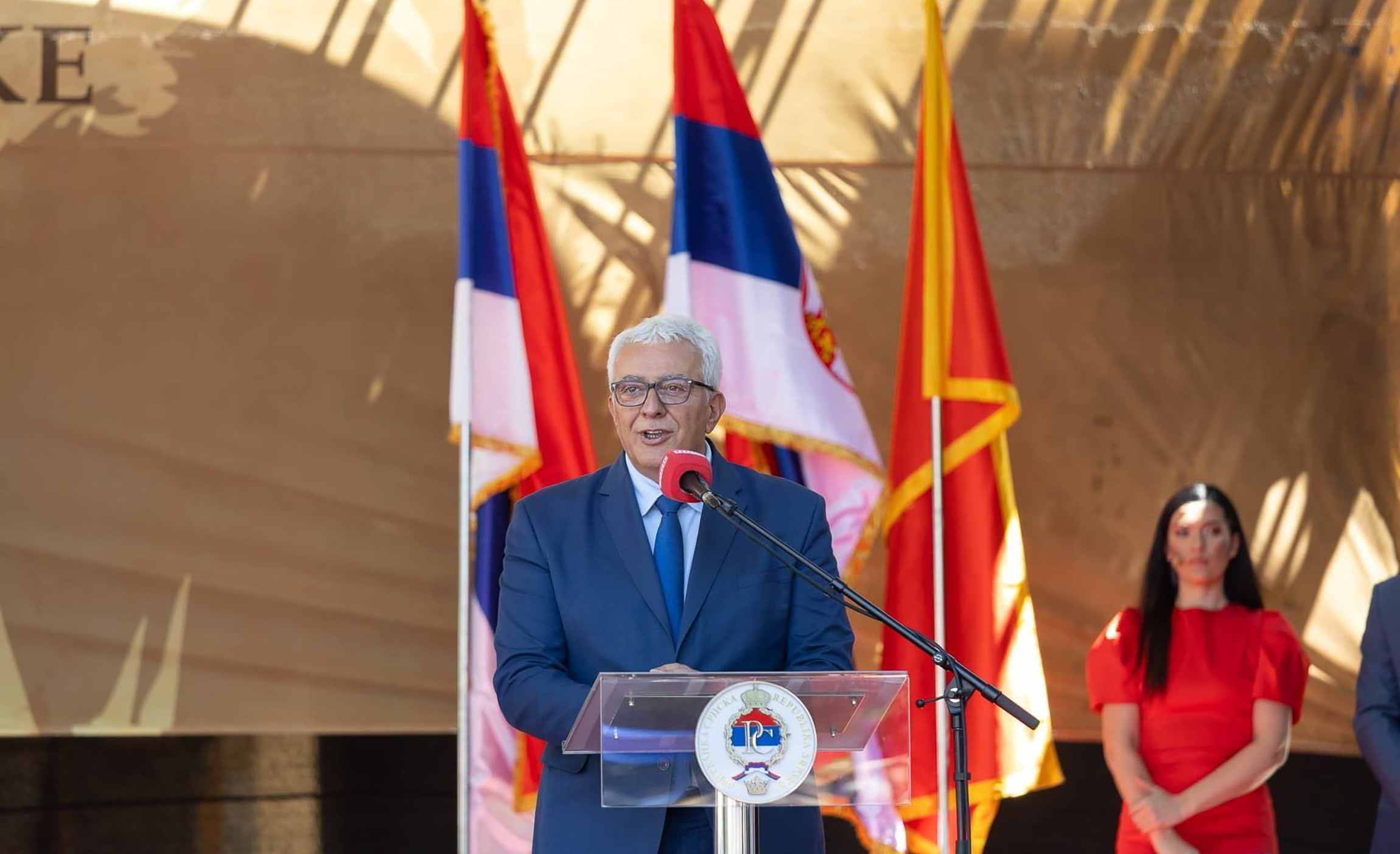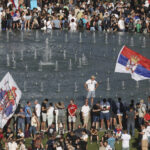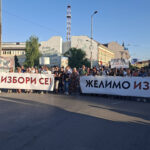When Andrija Mandić, Speaker of Montenegro’s Parliament and long-time Kremlin sympathizer, embraced Russia’s newly appointed ambassador in Podgorica, it was not just a warm diplomatic gesture. It was a moment of ideological clarity. That hug said everything words often disguise in Balkan politics — that Mandić’s emotional and political allegiance remains where it has always been: in Moscow’s orbit.
Just days earlier, however, Mandić cast a vote in support of sending Montenegrin troops to join the EU mission assisting Ukraine. Even more puzzling, his political ally Milan Knežević — known for his unabashed Putinism — abstained instead of voting against. At first glance, it looked like a tectonic shift: Montenegro’s most outspoken pro-Russian voices aligning, however subtly, with an EU military initiative. But appearances deceive.
This was not an ideological awakening. It was a carefully calibrated tactical move — a maneuver crafted in Belgrade, staged in Podgorica, and aimed squarely at Brussels.
The timing tells the story. As Serbian President Aleksandar Vučić faced increased scrutiny for clandestine arms exports to Ukraine, and as relations with Moscow soured, he needed a symbolic gesture to appease Western partners. Enter Mandić, whose vote functioned as a signal — not of Montenegro’s agency, but of Vučić’s adaptability.
Mandić’s new institutional role has given him space to reinvent himself as a “reasonable nationalist” — one who speaks of European values by day and hugs Russian envoys by night. His long-time partner, Milan Knežević, continues to speak the unfiltered nationalist truth — unbound by institutional responsibility and free to provoke, polarize, and reassure the radical base that “nothing has changed.
It’s a classic division of roles: the good cop = bad cop dynamics. Both serve the same agenda — to reposition Serbian nationalist influence under a more palatable façade.
Though Milan Knežević remained outside the executive branch, he was compensated with powerful ministries and, crucially, political control over Zeta — a newly formed local government unit carved out near the capital and encompassing Podgorica’s international airport. More than just a concession, Zeta functions as a political outpost: a municipality that increasingly behaves less like part of Montenegro and more like an extraterritorial extension of Serbia.
Zeta, Pljevlja, Nikšić, are headed by Mandić and Kneževiž forces. They don’t secede; it doesn’t need to. Its function is subtler — to demonstrate that territorial, administrative, and symbolic power can be localized, repurposed, and aligned with Belgrade, all within the legal framework of Montenegro. It’s the blueprint for “soft partitioning” from within.
The parliamentary vote that sent Montenegrin troops to Ukraine was lauded by some in the West as a sign of Montenegro’s continued Euro-Atlantic path. But the context reveals otherwise. That vote coincided with Vučić’s overtures to Zelensky and Brussels.
Mandić’s support and Knežević’s abstention allowed both to play their roles: one to show compliance, the other to maintain ideological credibility. For Brussels, it was read as alignment; for Moscow, it was perplexing. For their domestic audience, it changed nothing. Everyone got what they needed — except, perhaps, Montenegro itself.
What’s unfolding is not a democratic transition, but delegated diplomacy. Montenegro’s pro-Russian nationalists are acting on behalf of Serbia’s foreign policy needs. This isn’t new — it’s how Belgrade has long managed its influence across the region.
In Bosnia and Herzegovina, the proxy is Milorad Dodik. In Kosovo, it was the now-dismantled Serb parallel structures. In Montenegro, it’s a subtler game. Mandić and Knežević are embedded in institutions, but their loyalty — and their coordination — stems from Belgrade.
Montenegro’s fragmented institutions, contested identity, and weak political center make it vulnerable to this kind of manipulation. It’s a state increasingly shaped by external interests, even when decisions appear domestic. And the EU, desperate for signs of cooperation, is too often satisfied with symbols instead of substance.
The greatest danger lies in misreading these tactical performances as progress. If Western actors continue to reward gestures — a handshake, a vote, a polite abstention — while ignoring the parallel nationalist agendas that erode democratic norms, they risk enabling further destabilization of Montenegro.
What Mandić and Knežević offer is not a compromise — it is simulation. A performance of cooperation designed to buy time, preserve leverage, and continue the slow corrosion of Montenegro’s Euro-Atlantic orientation from within.
Montenegro, in this equation, becomes a theatre. The script is written in Belgrade. The audience is in Brussels. The actors are well-rehearsed. And sovereignty, in this context, is just another prop.
Ljubomir Filipović. Montenegrin political scientist

The articles published in the “Opinions” column reflect the personal opinion of the author and may not coincide with the position of the Center



